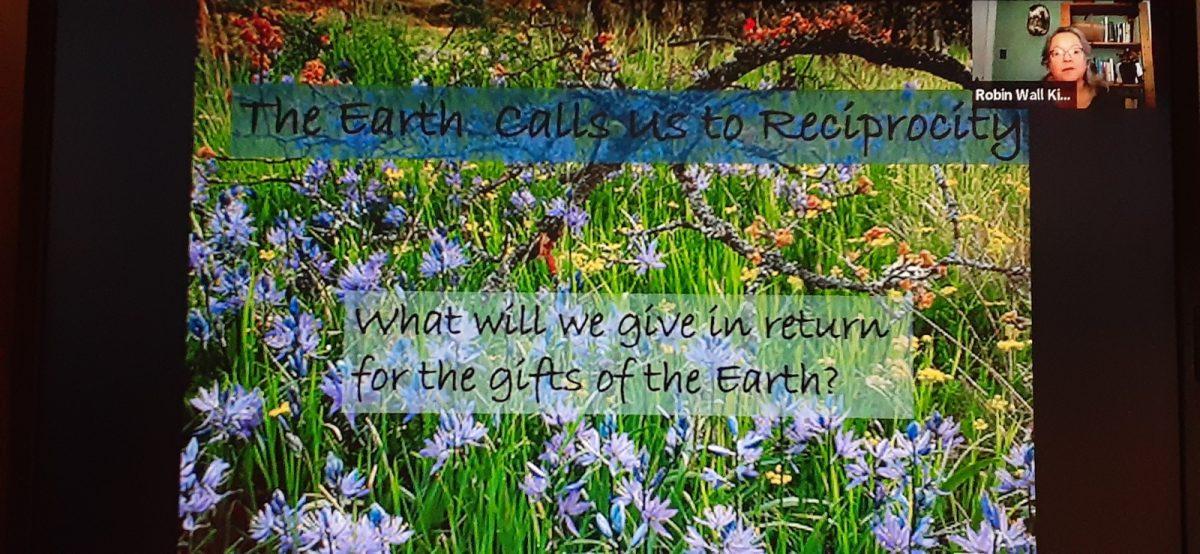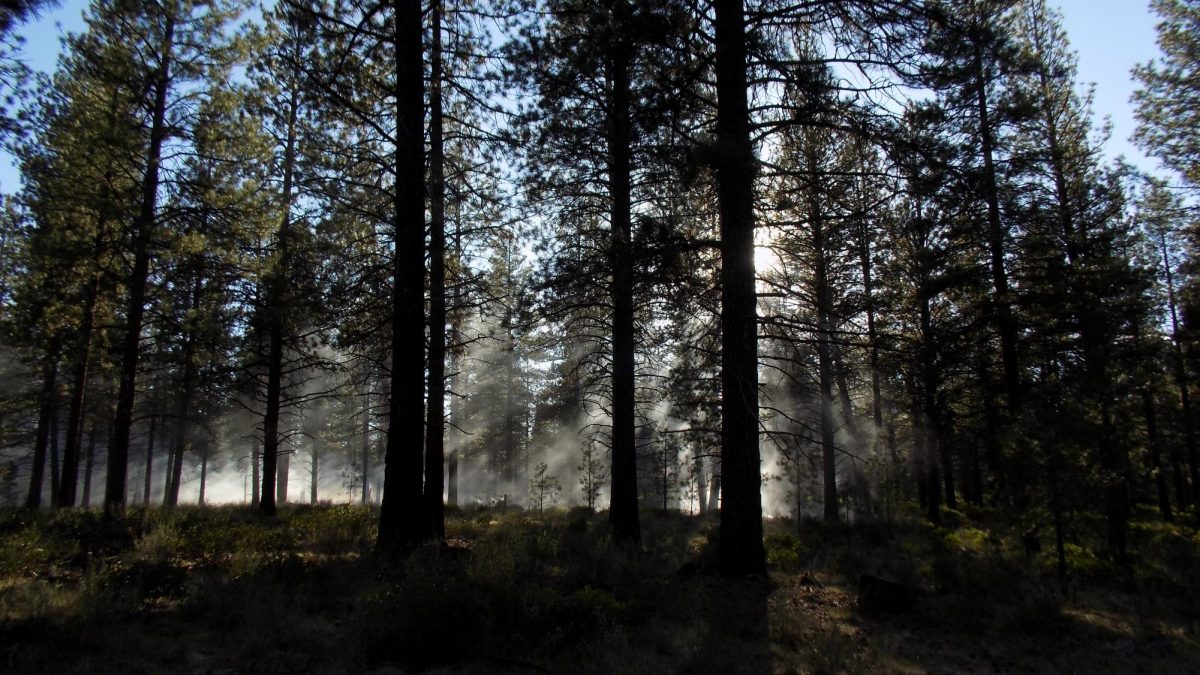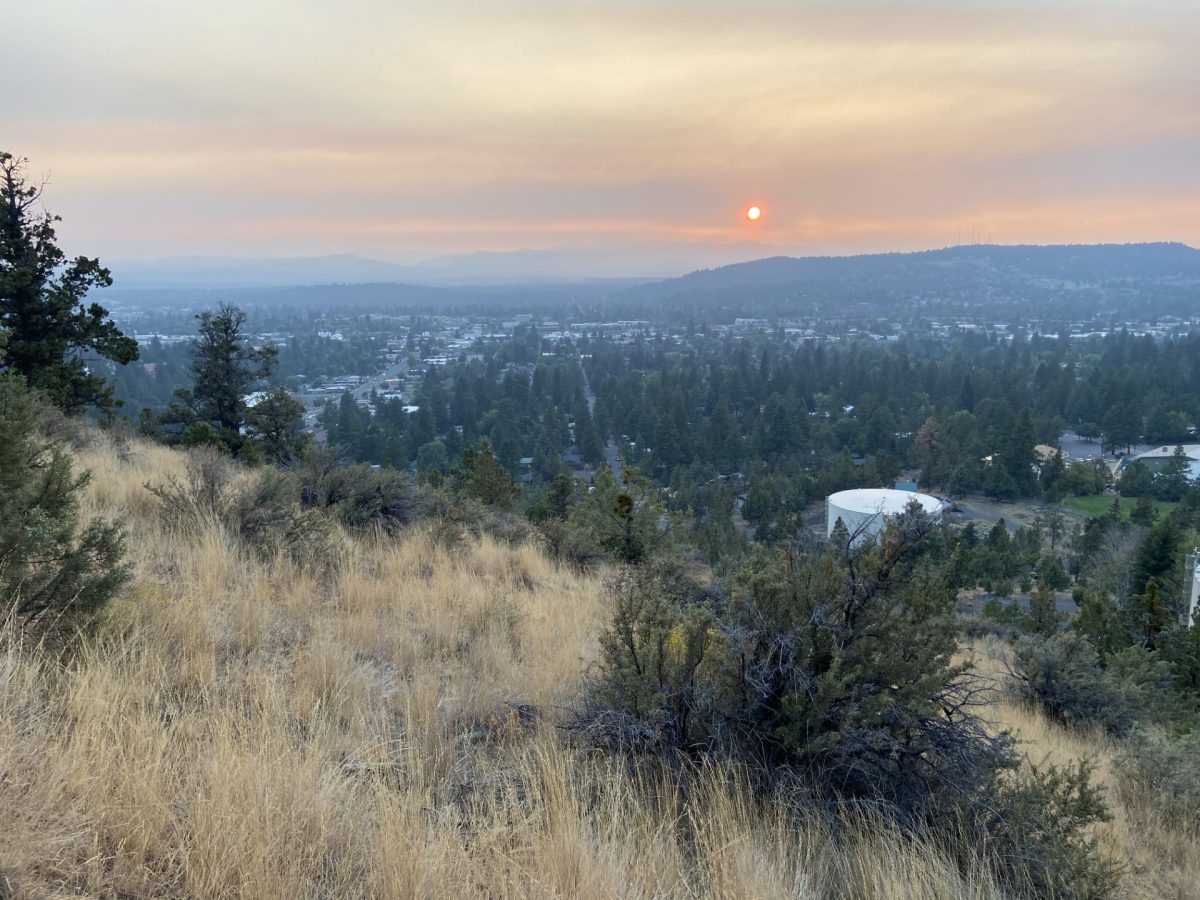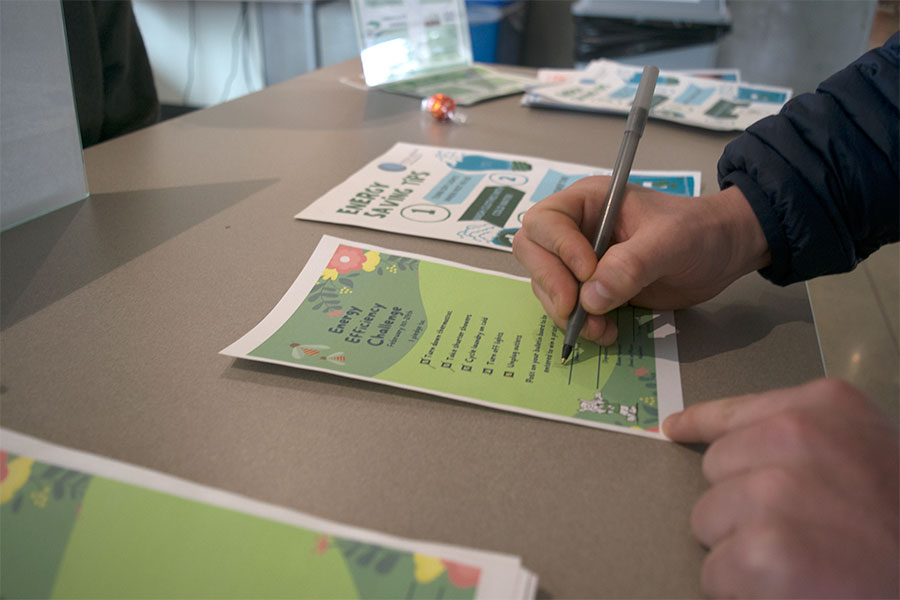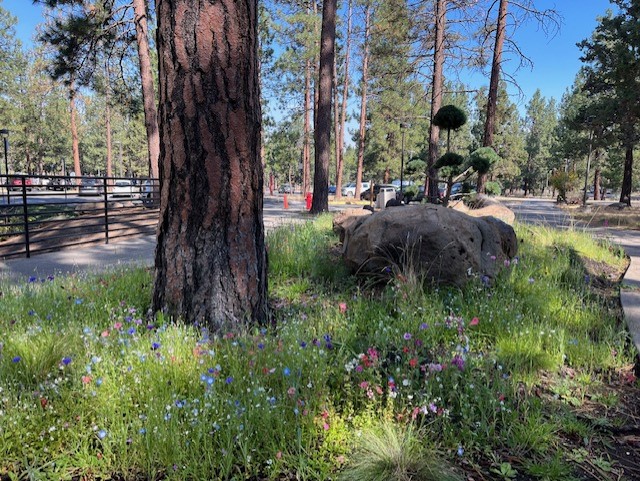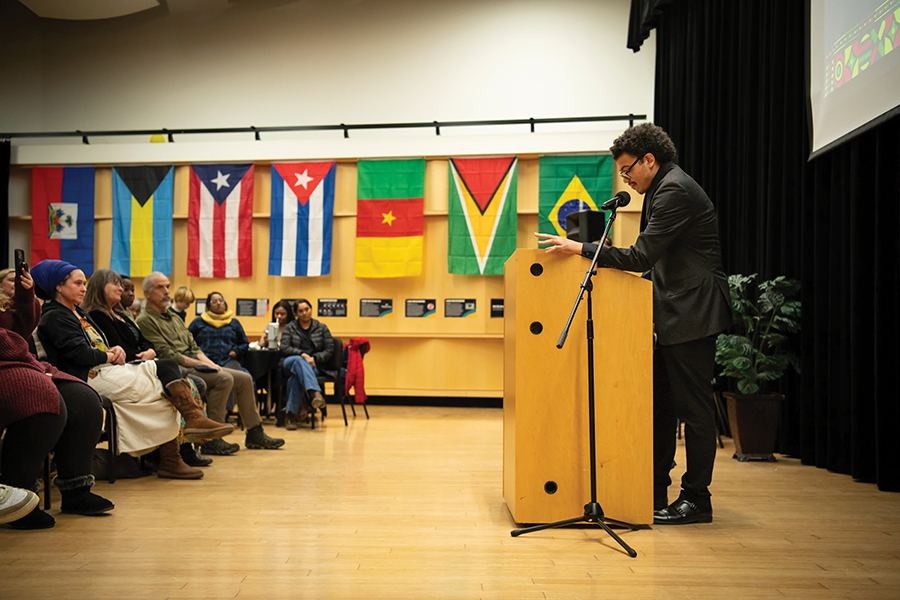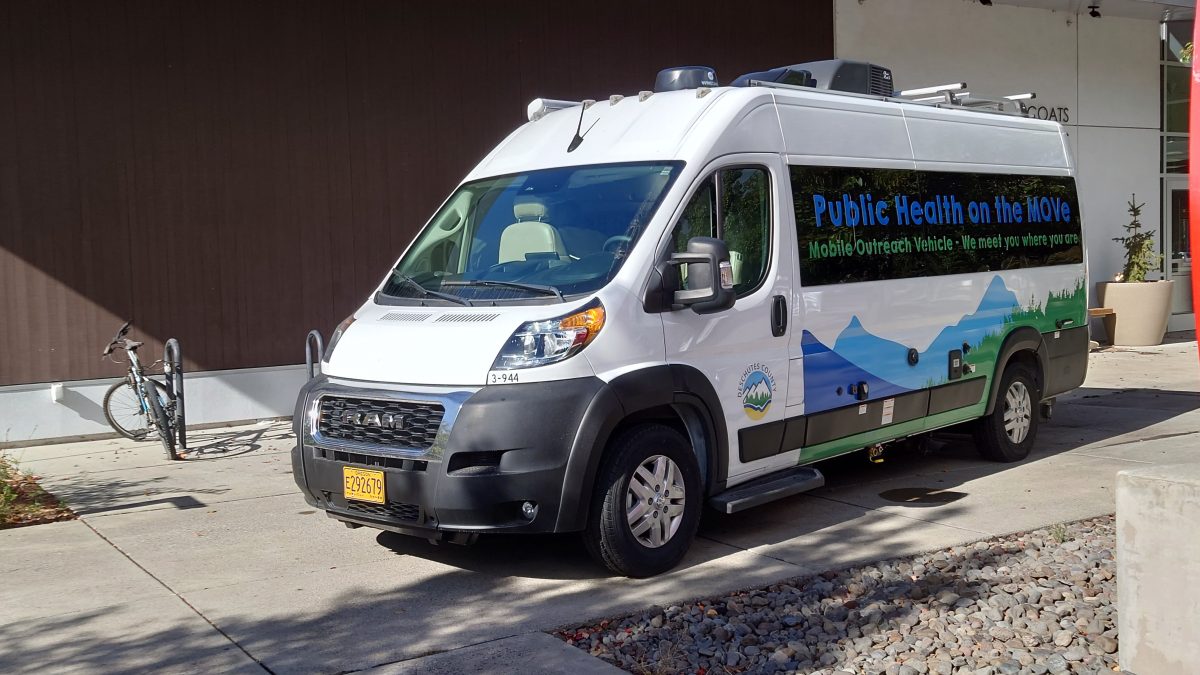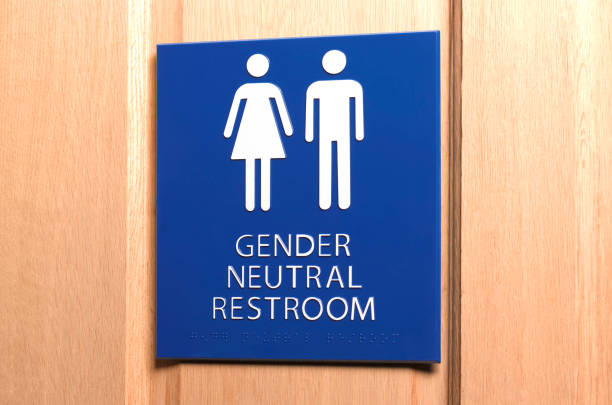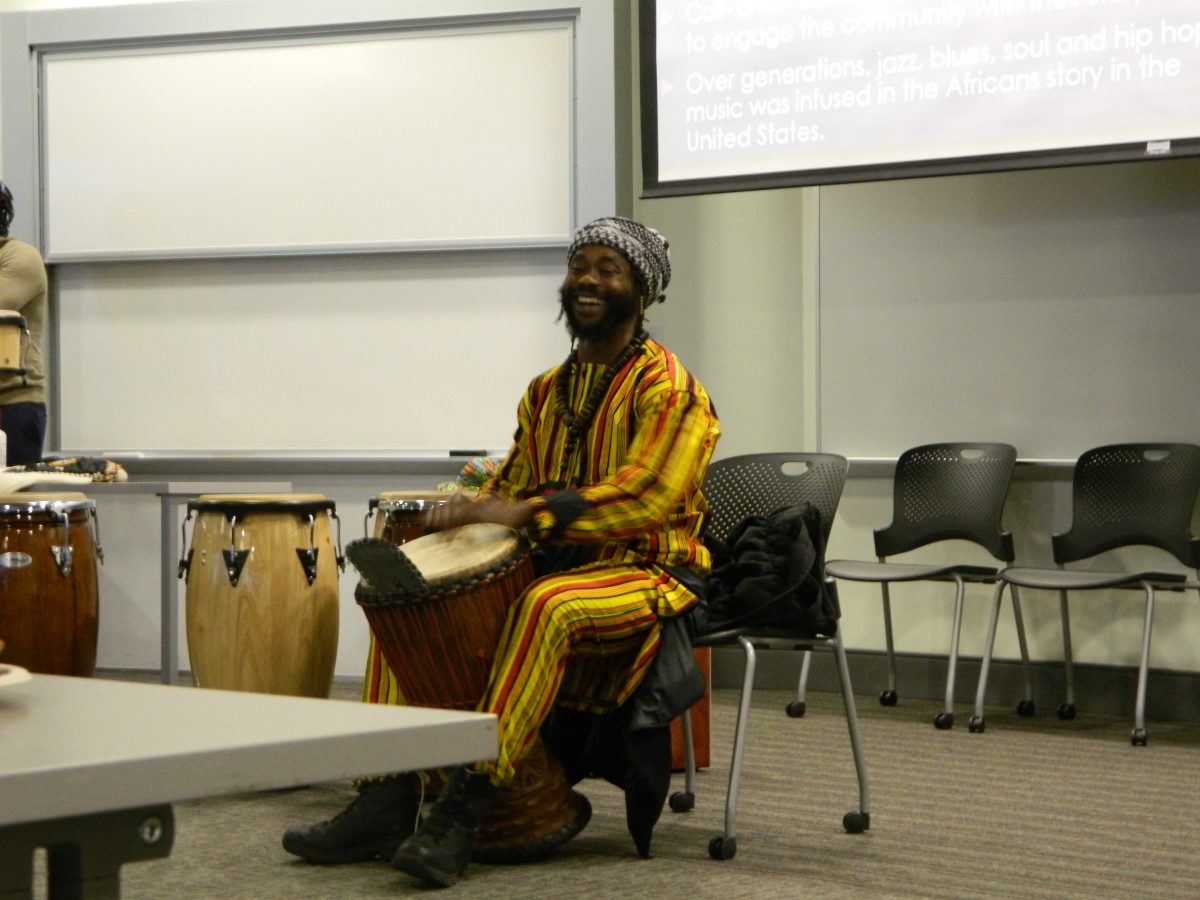Iysha Macy and Ellie Ocel/The Broadside
On Jan. 24, Robin Wall Kimmerer spoke virtually at the University of Oregon about ecological science and her book, Braiding Sweetgrass: Indigenous Wisdom, Scientific Knowledge, and the Teachings of Plants. Over a thousand attended the live stream on YouTube and 200 people attended in person at the University of Oregon. One of the sponsors of the talk was COCC Season of Nonviolence.
At her talk, Wall Kimmerer discussed her indigenous viewpoint on ecology, science, and nature. Wall Kimmerer also gave some ideas for creating positive change in today’s society.
According to COCC’s quick facts page, the college’s student population is only 3.8% American Indian or Alaska Native. As a part of the COCC Season of Nonviolence, Wall Kimmerer shared a not-often-seen indigenous perspective with COCC students. She also gave indigenous students the opportunity to hear a voice similar to their own.
Wall Kimmerer brought up each point in her presentation as it related to climate change. Wall Kimmerer provided students with tools to respect the living world and through that respect create change.
Wall Kimmerer began by posing the question, “What does the Earth ask of us?”
The Earth asks humanity for reciprocity, Wall Kimmerer told the audience. The best way to reciprocate is to pay attention and go outside.
Wall Kimmerer explained that in many indigenous languages, the word for “tree” means “landholder”. By going outside, people can learn to respect the landholders of the Earth.
One solution Wall Kimmerer gave for learning to pay attention and give gratitude to nature, is to use a pronoun other than “it” for non-human species. The pronoun she proposed to refer to earth beings was “ki”, and its plural, “kin”.
Wall Kimmerer spoke of the limitations and advantages of western science. She discussed the shift in viewpoints that needs to occur across the world, a shift from land as a natural resource to land as identity, home, and moral responsibility.
Wall Kimmerer discussed the One dish one spoon treaty belt. This belt is treated as a metaphor for how people should interact with the world. People who live amongst one another share the Earth. The Earth is a bowl with a lot of resources, people are given one spoon with which they have to use the resources in the bowl, and respect what they need to give and take but keep the bowl clean. There is only one spoon so people need to respect what they are given and act as one.
Finally, Wall Kimmerer discussed her relationship with sweetgrass. Sweetgrass is Mother Nature’s hair, she said. By braiding sweetgrass, people care for Mother Nature. The three parts of the braid represent indigenous wisdom, scientific knowledge, and the teachings of plants, the subtitle of her book.
Wall Kimmerer’s speech was a part of the larger COCC Season of Nonviolence. Other speakers for the COCC Season of Nonviolence include Winona LaDuke, an economist who will speak about indigenous and environmental economics, and a panel who will examine inequalities in Central Oregon. LaDuke’s presentation will occur on Feb. 1. It will include a student-only virtual discussion from 4 to 5 p.m. and a virtual presentation from 6 to 7:30 p.m. More information about the COCC Season of Nonviolence can be found at this link.


